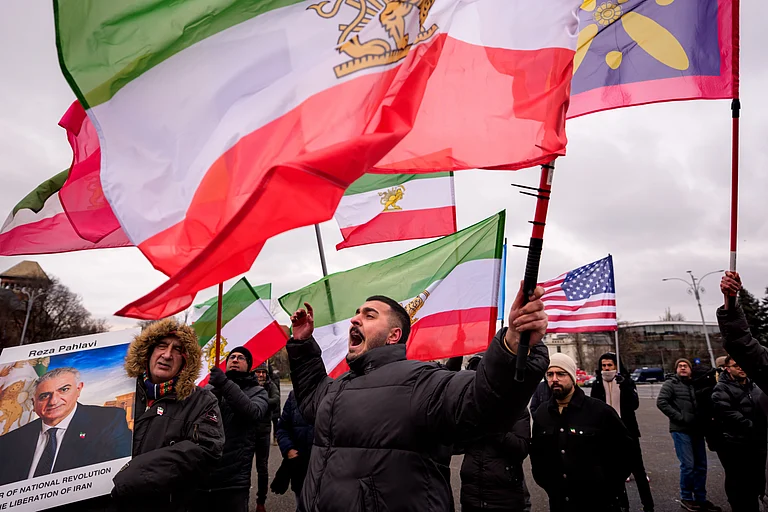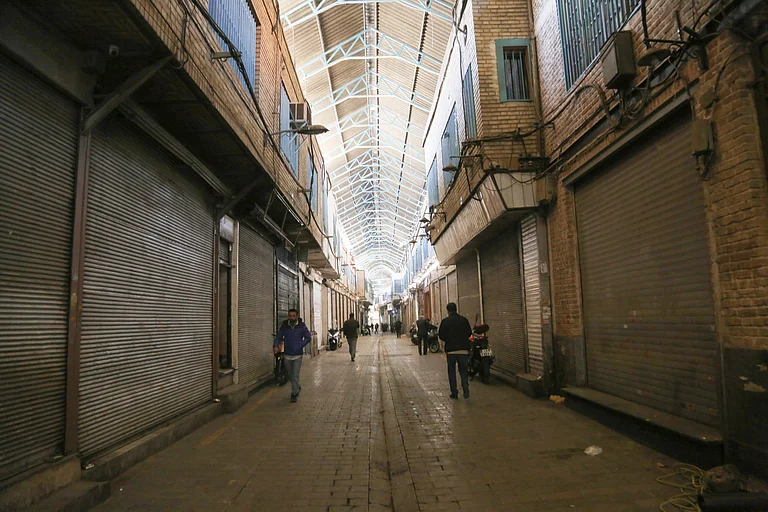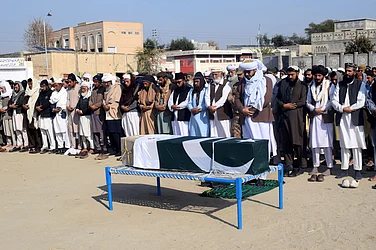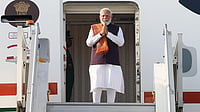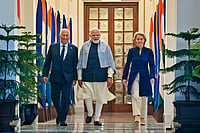Will the death of the six Israeli hostages at the Rafah tunnel be a turning point in the Israel’s Gaza war? Or will Prime Minister Benjamin Netanyahu ride the public anger and continue with the war, till the remaining Hamas leaders and fighters are totally obliterated and he can claim complete military victory. What is at stake are the lives of the hundred or so Israelis still held hostage in Gaza. As Israel continues its killing spree in Gaza, (the count is above 40,000), more hostages will unfortunately bear the brunt.
Those who murder hostages don’t want a deal, Netanyahu said in a statement after the IDF found the bodies of the hostages, indicating that he is in no mood to sign a ceasefire agreement.
A peace deal to free the hostages and announce a ceasefire has been on the table since May. Though it was dressed up as an Israeli initiative when US President Joe Biden first announced it, the deal was very much driven by the Americans. US diplomats, including secretary of state Antony Blinken have been flying in and out of the region in an effort to get the deal off the ground. Despite the targeted killing of Ismail Haniyeh the political leader of Hamas in Iran, and Hezbollah commander Faud Shukr in Beirut, since the peace initiative was announced, Hamas has not backed out of it. Iran, Hezbollah and Hamas form what is called the axis of resistance to Israel’s war on Gaza. Hamas will not back out of a deal because it desperately wants a ceasefire to regroup and revive its battered fighting units.
Netanyahu has had differences with both members of his war cabinet as well as the army on continuing the war. He has the staunch support of his right-wing ultra-orthodox group both inside and outside the government. Netanyahu’s representatives have been shifting goal posts in the peace talks in an attempt to scuttle the deal and if possible blame Hamas for the breakdown. Those conditions included keeping Israeli troops on the Philadelphi Corridor bordering Egypt, and the Netzarim Corridor separating north and south Gaza. The IDF has focused on freeing captives through military operations as it did in early June when it rescued four hostages but killed over 200 Palestinian civilians in the process. Deaths of Gaza’s civilians have not bothered Israel, but the killing of hostages is a different story.
The recovery of the six bodies has come as a shock. Domestic pressure is mounting on the Prime Minister, and this time the families of hostages who have been fighting a lonely battle for the return of their loved ones, are being joined by large crowds. Most people shaken and angered by Hamas action on October 7 had backed Netanyahu’s policy of retribution. But the deaths have brought home the point that unless a ceasefire is worked out, the remaining hostages could face a similar fate. There is a sense of urgency and feeling of anger in the protests now and large numbers joined Sunday’s demonstrations against the government. The Hostages Forum called for the PM to 'take responsibility' for the 'abandonment' of the hostages. Histadrut, Israel’s largest trade union called for a nation-wide strike from 6am on Monday. The trade union also brought operations in Israel’s Ben Gurion international airport to a halt for two hours. “A deal is not progressing due to political considerations and this is unacceptable,” Arnon Bar-David, the trade union boss, is quoted as saying by the Israeli press. “I have come to the conclusion that only our intervention can shake those who need to be shaken.’’
Critics of Netanyahu in Israel say that it serves the Prime Minister to prolong the war. After the war ends, questions about responsibility and the failure of the Netanyahu government to foresee the October 7 attack by Hamas will come to the fore. Elections will also be at hand and by all accounts the PM will have a tough fight ahead. This would also mean investigations into his past financial scandal and possibility of a jail sentence for Netanyahu.
"The decision by the security cabinet on Thursday to keep Israeli forces on the Philadelphi route even as part of a possible hostage release deal, contrary to the position of Defence Minister Yoav Gallant, means one thing: Prime Minister Benjamin Netanyahu is once again thwarting the deal, or at the very least putting up obstacles to its feasibility,’’ one of Israel’s most respected daily newspaper, Haaretz, said in an editorial on September 1.
President Biden had hoped to bring in a ceasefire and hostage deal with his peace initiative and is expected to egg on Netanyahu to let the deal go through. But with election season round the corner, the US will not upbraid Israel publicly. However, the fact that an American Jew is among the six dead has perturbed Washington. Biden spoke to the parents and expressed his sympathy. Of the remaining 101 hostages in Gaza, seven are American citizens. Democratic presidential candidate and current vice president Kamala Harris, who had earlier called for a ceasefire and pushed for a halt to the fighting, in her comments after the killing of the American hostage, offered condolences but did not press for the ceasefire.
Biden and Harris are expected to meet the US team negotiating the peace process to mull over how to bring in a ceasefire. Incidentally, the US captives were among those being considered for release in the first batch of prisoner exchanges between the two sides if the peace deal had worked.
Meanwhile Republican presidential nominee Donald Trump blamed Biden and Harris for the death of the American citizen. He posted that the deaths of the Israeli hostages “happened because Comrade Kamala Harris and Crooked Joe Biden are poor Leaders. Americans are getting slaughtered overseas… They have blood on their hands! Sadly, this is the total lack of ‘Leadership’ that Kamala and Biden represent.”
Despite pressure from the US and the enormous clout that America has on Israel as the principle arms supplier, Netanyahu is unlikely to take diktats from Washington and has shown remarkable ability for political survival. No US political leader will push him publicly considering the enormous clout of the powerful Jewish lobby in American elections. The push will have to come from Israeli domestic pressure. However, Netanyahu has the solid backing of the religious ring-wing group. Two of his ministers, Itamar-Gvir and Bezalel Smotrich, have backed the PM to the hilt.
Security minister Ben-Gvir responded to the news of the six captives’ deaths with calls to build settlements in Gaza. “Those who place the blame on the Israeli government echo Hamas propaganda,” Ben-Gvir wrote on X, formerly Twitter. “In Gaza, too, the price of killing the abductees should be where it hurts them – the occupation of more territory and the establishment of a Jewish settlement in Gaza.”
Netanyahu has always wriggled out of tough situations and survived, and he may yet get his own way and continue the war.








